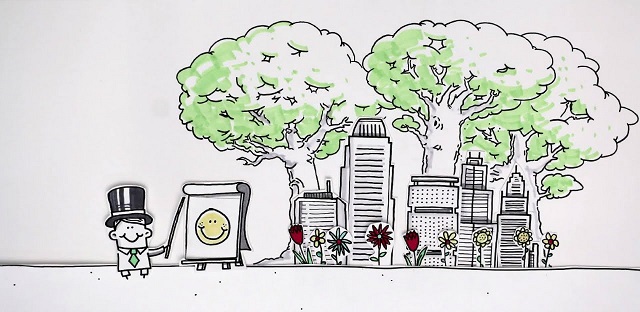Cannabis prohibitionists have a fallback position when none of the usual rhetoric succeeds. It’s a vague appeal to some kind of “good of society”. This argument encompasses a variety of different sentiments, most of them fear-based. As this article will examine, this argument is no more true than any of the others.
At the time this article was being composed, it was in the news that a Dunedin man named Harley Brown had just been sentenced to two years and three months in prison for growing over a hundred cannabis plants. Meanwhile, another man named John-Boy Rakete had been sentenced, two weeks previously, to two years and two months in prison for bashing a man into a coma from which he is expected to never recover.
Imagine going to prison for growing a medicinal flower at the same time as a gang member who beat someone into a vegetable state, and seeing that gang member get out of prison before you. It sounds like something out of a Kafka novel, but it’s the reality of our current legal approach to cannabis. Can it fairly be argued that this arrangement serves the good of society?
It’s hard to see where the benefit to society is in this arrangement. Brown will be incarcerated at the cost of $100,000 per year, which is greater than the total value of the cannabis plants he had, even if this value is calculated using Police maths. As a result of his incarceration, a number of people will be made to suffer without the medicine they would otherwise have had.
How does this serve the good of society?
Rather than serving the good of society, prohibition puts us at each other’s throats. The friends and family of Harley Brown will probably have contempt for the system for the rest of their lives. Most people who compare the two cases above and their respective sentences will conclude that something is fundamentally rotten with our justice system, which appears to dish out punishments with no consideration given to how much suffering the perpetrator may have caused.
The good of society is served by alleviating the suffering of the people in that society. Education is a public good because ignorance causes suffering. Healthcare is a public good because disease causes suffering. Infrastructure is a public good because mobility restrictions cause suffering. Anything that is genuinely a public good alleviates suffering somewhere.
Prohibition serves no such good. As has been demonstrated in the previous chapters of this book, it doesn’t prevent suffering, but, to the contrary, it causes suffering. There is no social good served by arresting people who aren’t harming any one. Neither is any good served by imprisoning these people. Least of all is any good served by lying about how cannabis causes harm to the community.
The ultimate reason why cannabis prohibition does not serve the good of society is that the people will never accept not being allowed to use cannabis. The people will always intuitively feel that they have the right to use cannabis, because it alleviates suffering, because it’s a social tonic and because it can connect people to God. Because of this, prohibition can only ever cause conflict between the people and those tasked with enforcing it.
The idea that people will eventually “come to their senses”, realise that cannabis is a dangerous drug, and stop using it, is nonsense. Cannabis prohibitionists have gone all-in on this puritanical delusion, and they have lost. It’s time to admit that reality does not reflect the idea that cannabis is dangerous, or that the harms of cannabis are in any way ameliorated by making it illegal.
The good of society is best served by honesty. Honesty is one of the most fundamental virtues, because it’s only through honest discussion that we can come to see the world accurately. Without being able to see the world accurately, we will make mistakes that lead to conflict.
This honesty would cause us to have a look at Colorado, where they legalised cannabis in 2012. In Colorado, none of the terrible things that the prohibitionists predicted came to pass. There wasn’t an outbreak of violence or other crimes, there wasn’t an epidemic of cannabis addiction and it didn’t become easier for young people to get. Everything continued the same as normal, only there was much more money on account of it no longer being wasted on enforcing prohibition.
Legalisation would serve the good of society much better than prohibition. A system of legal cannabis would not only increase social cohesion by removing one of the major wedges that drives us apart, but it would also increase the respect that the average person has for the Police, the Justice System and the Government. Not least of all, it would save us a ton of money.
*
This article is an excerpt from The Case For Cannabis Law Reform, compiled by Vince McLeod and due for release by VJM Publishing in the summer of 2018/19.

